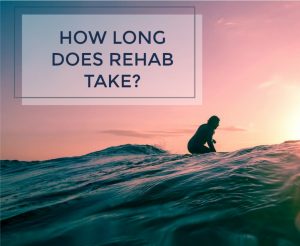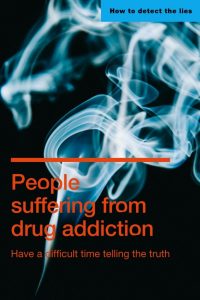Can a 14-Day Rehab Actually Provide a Platform for Long-Term Recovery?
Recently I’ve seen a rise in people asking about 14-day drug and alcohol treatment programs. Two-week drug and alcohol inpatient treatment programs can be a little controversial. Don’t worry I will break down all the pros and cons. Typically when you search for inpatient substance abuse treatment centers you will find that about 90% of them fall into one of two categories.
The first kind is the 30-day inpatient drug and alcohol centers. The second kind is the treatment center that advertises 30 to 90-day substance abuse treatment programs.
So how do you find a treatment center for drug or alcohol abuse that has a two-week program?
It is a needle in a haystack but they are out there. The best way is to use a treatment placement specialist that has relationships with treatment centers across the country. Don’t bother calling treatment centers that advertise 30 or 30 to 90-day programs. They most likely don’t want your business.
Look at the Drug Rehab’s Website
I know it sounds harsh but drug rehabs aren’t typically set up to be profitable for short-term stays. It’s not that they are unethical, it’s just that there are different business models in the treatment industry. So if the website doesn’t say “ we offer 14-day drug or alcohol treatment programs” they don’t offer it. Don’t let them convince you otherwise. This is life and death stuff and you want to get the exact type of care you want and need
The Trend is for Longer Term Rehab Programs
Most substance abuse facilities and placement agents will discourage a person seeking two-week treatment programs. I think that’s a real shame. I believe the rise in people seeking 14-day programs is due to circumstance. Short-term options are for people that have either employment, school or family responsibilities. Some folks just can’t be away for 30 days — let alone three months.

The length of time for addiction treatment also depends on whether the user: abuses multiple drugs, has mental health disorders, and other associated factors
I have recently seen a rise in people using their two weeks’ vacation time from their employer to attend a two-week drug or alcohol treatment center.
Does a Short Program Work for Lifetime Recovery?
Most importantly does it work. Is a two-week inpatient substance abuse treatment program long enough for a person to fully recover from drug or alcohol addiction? Before I answer that let’s go over some of the factors that determine how much care you can receive in a 14 day stay in a substance abuse facility.
The first determining factor:
Does the person checking into treatment need detoxification and if so how many days in detox do they need for drugs and or alcohol?
Let’s talk about the detox process as that can be as little as 1 to 3 days and as many as 7-10 days or longer. If a person needs 10 days or longer of detox a 14-day drug or alcohol treatment program isn’t going to work. It’s just not enough time going to treat an addiction.
Here’s why. During detox, the treatment staff can’t diagnose or treat most underlining mental health problems. These are things like trauma, depression or anxiety disorders which may be a significant contributor to the client’s addiction.
Who are the best candidates for a 14-day rehab?
The second determining factor:
The best candidates for a 14-day drug and or alcohol treatment program are people that have either recently relapsed (after an extended period of being clean and or sober) or periodic users of drugs or alcohol.
The reason periodic addicts and alcoholics are good candidates for a fourteen-day treatment program is they may not need more than one to three days to detox if any. That allows the treatment center clinical staff to diagnosis them quickly. The treatment of the substance (and any underlying causes and conditions that lead to the addiction) can start right away. This will be the focus of the entire two-week treatment program.
Who are bad candidates for a short-term program?
Bad candidates for a 2-week drug rehab program are people addicted to drugs for a long time. This is particularly true for folks hooked on opiates like heroin, oxycodone or oxycontin.
The reason a fourteen-day substance abuse treatment program is not ideal for them is that it usually takes 7-10 days to physically detox from opiates. During that 7 -10 day period (generally) it’s not possible to diagnose and to treat underlying mental health disorders.
A person needs to be free from withdrawal symptoms to be properly diagnosed and treated by clinical staff.
During the detox phase of drug or alcohol treatment, the client’s ability to absorb clinical help is also diminished by their physical condition.
Short-Term Treatment Expectations
So what would a typical 14-day treatment program look like for the ideal candidate? Once the client is reasonably detoxed the medical staff will begin the diagnosis of any underlying mental health disorders. These are problems with trauma, anxiety and or depression. These conditions must be treated as components of addiction.
Besides mental health evaluation, the treatment center will diagnosis any and all addictions and behavioral disorders. It is very common for people to be addicted to more than one substance and have one or more behavioral disorders. This is often referred to as a co-occurring disorder, dual diagnosis or dual addiction.
Co-Occurring Examples
Many alcohol abusers also abuse drugs in addition to alcohol. The drugs can be legally prescribed or illegally purchased. Many substance abusers act out in destructive behavior while abusing chemical substances. These are behaviors like gambling, sex, food, violence, criminal activities etc. Once you are clean and sober, you will not be participating in these kinds of activities.
Honesty is Part of the Recovery Process
A person who is searching for a two-week treatment program needs to have the ability (once detoxed) to open up and be honest with the treatment center staff. People usually fall into two categories in treatment. There is “the talker” and “the vault”.
The Talker
The talker loves to talk endlessly. They most likely have a warped perception of reality. The good news is they’re willing to talk about whatever bothers them. This is true whether they blame their substance abuse on their childhood, job, spouse, family, stress, problems or any slew of scapegoats. They are willing to talk and blame their problems on something.
In a two-week treatment program, this type of person has an edge. As they open up in a group and privately with the clinical staff, the team will be able to diagnosis them much quicker. This helps the medical team design a treatment protocol in a reasonable amount of time.
The Vault
“The Vault” is a person that you have to pry information out of. These are the type of that have a lot of secrets and their life is a closed book. They will sit in a group and in a one-on-one session with their arms and hands crossed. This person has an attitude that they aren’t going to share what is really going on.
In order for this type of person to get the help they need (in a fourteen-day program) you need to choose the right rehab. Look for a qualified facility with an abundance of licensed clinical staff that has experience with fast-paced recovery.
Getting people to open up that have lived their adult lives in secrecy and private is a process that takes time.
The Addiction Treatment Process

Once a client has gone through detox (and properly diagnosed with any mental or behavioral health problems) we can move ahead. This is when the educational process of treatment begins. Addiction is a disease. The first step in treatment in most treatment programs is for the client to admit that they have an addiction. This is true no matter what the substance is.
In a fourteen-day rehab program, a significant amount of time will be spent explaining addiction to the client. There will also be a lot of time spent reviewing the client’s past history of substance abuse. Basically, the client will go from a person denying they have a problem to a person that proves to the clinical staff that they do have a problem.
Practical Advice for Short-Term Programs
What I have outlined above is what you can expect to happen in a 14-day drug or alcohol treatment program. Although this article is about two-week substance abuse treatment programs I would be remiss if I didn’t include a little personal advice
Drug Treatment Practical Knowledge and Advice
It is very common for someone who enters a two-week drug and alcohol treatment center to extend their stay. This is because the hardest part of addiction treatment is getting a person to seek help.
Many people feel forced to go to treatment and look for a fast and easy way. That’s the main reason why people look for a two-week treatment program. Once in treatment, many clients feel the progress they are making and the positive life-changing effects of being in treatment.
A shift happens and they want to get as much time in a treatment center as they can. Their drive to live a better life is very powerful. They find ways to extend their treatment you would have never thought possible.
Overcoming Obstacles for a Longer Recovery Option
This advice is for the person who used their vacation time from their job to attend a two-week treatment program. They may not be aware of the Americans with Disabilities Act. This law treats substance abuse as a medical disability and requires employers to keep a person’s job open. This means that when you return from treatment, your job will be there exactly as it was before.

This is also true in the case of a person who finds out they are suffering from a chemical imbalance that causes them mental health issues. It may take a week or two for the treatment center’s clinical staff to diagnosis a chemical imbalance. Once diagnosed most prescriptions for mental health chemical imbalances take time to achieve the proper dosage. Some clients (once diagnosed) seek the comfort and safety of staying in treatment longer through this process.
The most important thing about treatment is getting someone to go.
The person who finds a reason not to go to substance abuse treatment doesn’t get better or change. History has shown us that when addictions are left untreated, problems get worse. The addicted person’s life and those around them suffer far greater consequences.
For the addict, it always gets worse never better. Whether someone goes into a two-week substance abuse treatment program (or for that matter 30, 60 or 90 days) the important thing is that they go. Once they get into treatment the process takes over and magnificent things happen.
Why does our author have the experience to teach me about two-week drug and alcohol treatment programs?
Bruce Berman personally has assisted several hundred people into treatment for alcohol, substance abuse, and dual diagnosis. He has maintained continuous recovery from various addictions since September 1989. Besides himself, he has placed his own children, employees, family members, friends and other loved ones into various treatment programs.
Whether you are struggling with addiction or a loved one is most likely the author has dealt with a similar situation in the past. Bruce is a father of four children ages 9 to 31 and happily married to his wife Victoria who has also been in recovery since November 1995. Together Bruce and Victoria run 800 Recovery Hub a company that specializes in placing people in need of treatment into the best treatment center they can.
DISCLOSURE
Bruce Berman is not a medical doctor, holds no degrees or licensees in addiction and has no formal education in treating addiction. He relies solely on his personal experience gained in attending and participating in over 10,000 hours in various 12 step meetings since 1989 as well as the experience he has working with addicts and their families since 1989.
SaveSave
SaveSave
SaveSave
